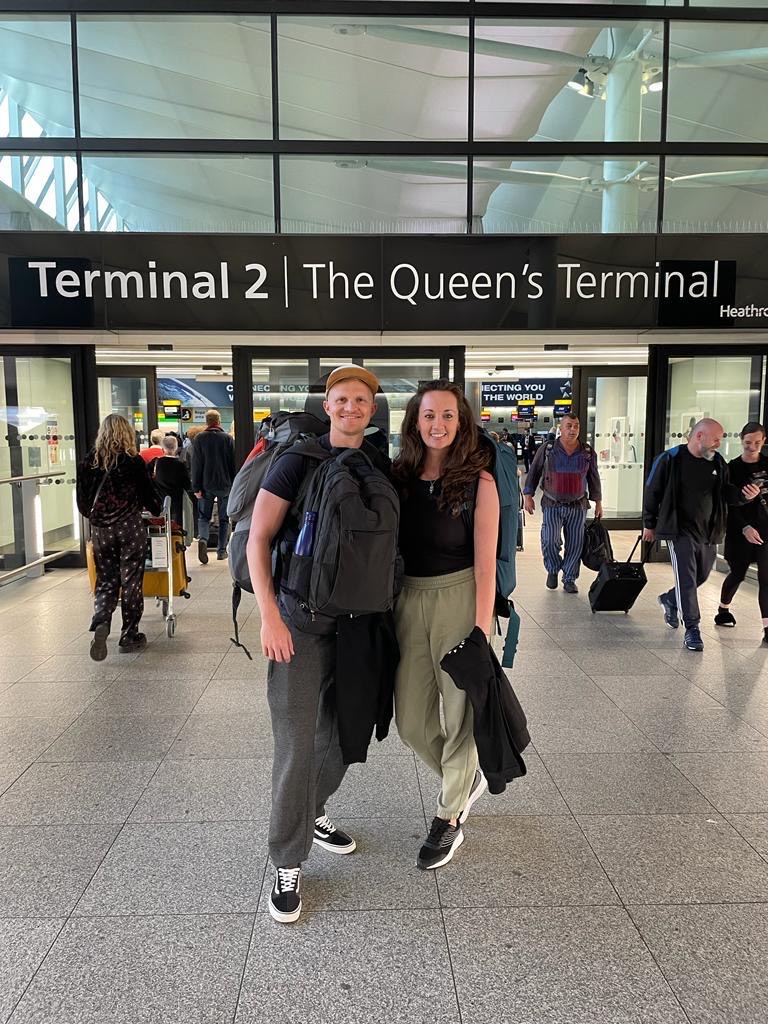*This TEFL certificate post is an AD
Getting my TEFL certificate had been a goal since before I ever started travelling. I actually wanted to be an English teacher when I went to university and I always knew it could be a super helpful way to keep travelling. But it was only in lockdown this year that I finally got round to completing it. I'm now a fully qualified TEFL teacher and have the option to teach and live abroad in the future, or even teach English online. As someone who plans to live abroad and travel in the future – having my TEFL certificate provides such security in finding work no matter what visas are available. It opens up the world and ensures I will always be able to find work no matter where I go, because there will always be demand for English teachers.
What is TEFL all about?
What is a TEFL course?
A TEFL certificate is an accreditation that qualifies you for teaching English as a foreign language. Completing the course allows you to provide non-native speakers with English language instruction. There are slight variations of the course available including TESOL (teaching English to speakers of other languages) ELT (English language teaching), or teaching ESL (English as a second language). If you are a native or fluent English speaker, holding the TEFL qualification opens up a world of opportunities to live and work abroad worldwide.
Is it worth doing a TEFL course?
Absolutely yes. If you are someone who dreams of travelling and working abroad – it can provide you with so many opportunities. Not only does it give you a sustainable way to work and travel, but it allows you to work in countries without worry over visas. For instance, I know a lot of friends who have worked in countries across Europe, Asia, South & Central America and even Dubai. Many of these jobs have either paid well, or have included free accommodation.
Should I get a TEFL certificate when I go travelling?
If you are someone who is going away on an open-ended trip, I would advise you to get a TEFL certificate before you go. You may never need it, but most travellers at some point will be running low on funds. It makes it easy to pick up work wherever you go which means you can travel for longer and top up your money along the way. While teaching abroad isn't always the best money, it can often mean getting free accommodation or other bonuses that can help you save. However, if you are just taking a few months to travel and know you plan to return home to work – it's probably not worth it to do a course.
What about teaching English online?
This is another really great way to earn money while you are travelling or even when you are back home. It can be a full-time job earning $2500+ per month, or also works well as a side-gig. With a TEFL qualification, you can also teach online so you are not tied to a location. It means you can always be earning alongside your travels simply by teaching conversation. Check out Cassie the Hag's great post on Earn Money by Teaching English Online (with and without a TEFL)

Practical advice for choosing a course:
4 things to consider when choosing a TEFL course:
Accreditation
Make sure the course you choose is officially accredited otherwise your qualification may not be recognised. There should be information provided on the provider's website that you can check. You can also find more information in this Guide to TEFL Accrediting Bodies.
Course length
The standard course length is 120 hours, but there are extensions or longer versions such as the 140 hour, 150 hour, 170 hour or even 220 hour courses. Don't go for any course shorter than 120 hours unless it is a full-time course. It won't go in-depth enough to prepare you for teaching and likely won't provide you with the certificate you need. Longer courses offer slightly more detailed and specialised training, including practical teacher training. These are not necessary if you simply want to teach a bit while travelling. But if you decide you want to develop your skills or turn TEFL into a career, it may be worth looking into the options available.
Course cost
You can find more detailed information about course costs below. But make sure you don't just choose a course because it is cheap without doing your research. There are often courses advertised at crazy cheap prices via Groupon – but I've checked the accreditation of some of these and it's non-existent. Do your research and read more in my costs section below.
Support level
Check how long you have to complete the course and whether you will have access to the materials beyond completion. Is this a realistic timeframe for you and will you need to refer back to your learning? Is there any online support available? What about after you finish the course – does the provider offer any support for finding jobs?
What's included in a TEFL certificate? How long is it for?
You will get access to all of the course materials – this may include written material, quizzes, video units, tests and more. My course allows me lifetime access to these materials. I studied a 120 hour course which included 13 modules, plus a bonus video unit. These covered a range of topics including lesson planning, grammatical awareness, lexis, phonology and classroom survival tips. Each module contained reading on the topic, plus exercises, quizzes and then a final module test. You also have the option to retake the module test if you don't get it right the first time, and you can refer back to the materials any time you need.
How much does it cost to get started?
This can vary hugely, so always do your research before purchasing a course. I have seen costs vary from £99 up to £500+ – a huge difference. Use the tips above so you know what you need to look for from your course and provider. You should look out for special offers and discounts – some providers offer these.
How many hours does it take in total? Is there a time limit on completing your hours?
The average 120 hour TEFL certificate can take anywhere between 1 month and 6 months to complete. The time it takes can depend on how the company structures the learning. It also depends on whether you are studying alongside work, or if you study full-time. My 120 hour course took me around 4-5 weeks to complete, but I wasn't studying every day, you could easily complete it in less time. Likewise, it could take you a lot longer if you're working and busy. There may be a time limit to complete your hours – again this depends on which course you do – but I had a year to complete the course.

Common concerns with TEFL:
No – the great thing about having a TEFL certificate is that it is valid for LIFE. That means that if you have a bit of spare time in lockdown, it could be a perfect time to get your certificate. You don't have to use it straight away, but it could really come in handy at a later date. Plus, if your course is like mine, you get lifetime access to the materials so you can brush up on your skills. I'm so glad that I completed the course because it's also helped me to get work during the pandemic by finding teaching English work online. Plus I know it will be super helpful in the future when I can get back to travel.
Does it matter that I don't speak the local language?
Absolutely not! Remember lessons will always be conducted in English so you won't be expected to know the local language. If there are problems with communicating meaning in English, often students will differ in ability in classes and others will be able to help you explain. Don't let this stand in the way of you becoming a teacher abroad.

How to choose a TEFL course:
TEFL Org 120-hour Premier Online TEFL Course
The TEFL Org 120-hour Premier Online TEFL Course is the most accredited TEFL certificate as recognised by employers worldwide. Created by experienced teachers, the course includes the following:
- 50 hour online TEFL Course – covering teaching styles, classroom management, TEFL methodology, business English, young learners and teaching one-to-one .
- 30 hour online Grammar Course – covers basic grammar and gives advice on how to communicate language rules to your students.
- 20-hour Online Video Course – a chance to observe lessons and bring the theory to life while getting ideas you can use in your own lessons.
- Two 10-hour specialist mini-modules – these focus on teaching via telephone and teaching larger classes, both aimed at those specific TEFL jobs and will help make your CV stand out.
The course comes with lifetime access to the materials plus extra access to to job vacancies and free TEFL careers advice available throughout your career. You also get a personal online TEFL tutor who can offer advice or assistance throughout from their years of experience. An online discussion forum is available where you can speak with other students and share resources. Finally, once you complete the course you will get an internationally recognised TEFL certificate in both digital and hard copy posted direct to your door.
You can start the course at any time by buying it online – at full price the course is £319. TEFL Org regularly hold sales and discounts, including a 50% off sale for the 120 hour course which finished on Sunday. So it's worth keeping an eye on the website for special offers.
Which TEFL course is the most recognised?
If you are planning to work as an English teacher in another English speaking country such as Australia, you may want to consider a Cambridge CELTA. This and the Trinity CertTESOL are the most recognised qualifications worldwide and in English speaking countries, these are likely preferred. However, if you are simply wanting to teach while travelling in areas like Asia, South America or Europe – usually a TEFL course will be enough. It is also much cheaper to do a TEFL, and it can all be done online.
- Research and choose a fully accredited course to sign up to.
- Plan how much time you can spend studying per week.
- Start working through the 13 modules and pass each test with flying colours!
- Complete your TEFL qualification and get your certificate.
- Find an amazing TEFL teacher placement in the country of your choice.














